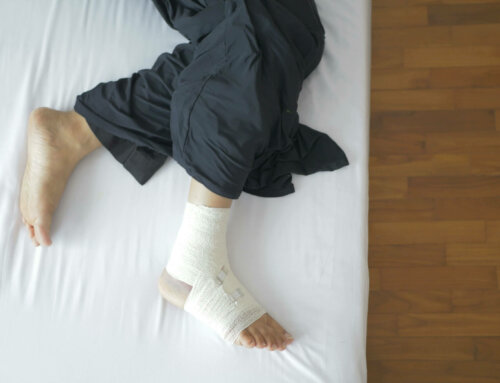Diabetes can damage all parts of your body, including your nerves. This is called neuropathy. Neuropathy is partly due to the effects of blood sugar.
There are two types: Peripheral neuropathy and autonomic neuropathy.
- Peripheral neuropathy is the most common nervous system complication associated with diabetes. If affects your legs, hands, and arms. Neuropathy has to do with your sense of touch, and your nerves in these parts will either be more sensitive or less sensitive. The way you feel depends on what nerves are affected.
- Autonomic neuropathy affects your stomach, your bladder and your digestive system. Signs of this damage include: nausea, diarrhea, vomiting, and difficulty emptying your bladder. Your doctor will prescribe medications to help alleviate these symptoms.
Less sensitive nerves do not send feelings of pain, heat or cold to the brain as easily. There may be a feeling of numbness or pins and needles in your feet. You may injure your feet and not be aware, due to the decreased sensitivity to pain. You must take extra care not to injure your feet and you must check your feet daily to see if an injury has occurred.
Your nerves may also develop increased sensitivity at times. When this happens, you may feel burning, numbness or tingling, or shooting pains in your legs and feet. You may not be able to tolerate the touch of clothing or sheets on your legs and feet.
Neuropathy can also affect the nerves that control sexual function. This may result in impotence for men and vaginal dryness or difficulty to achieve orgasms for women. Discuss these symptoms with your doctor.
Common treatments for diabetic neuropathy:
- Maintain healthy blood sugar levels
- Medications such as Lyrica, Cymbalta and others are available with a prescription from your physician
- Capsaicin is a topical cream made from hot chili peppers (roll on available) that can dull the discomfort
- Walk to decrease leg pains
- Relaxation, exercise, acupuncture, hypnosis
- Pain clinics
- B-complex and alpha lipoic acid
- Take care of your feet and report any signs of infection or foot injury immediately.
- Have a podiatrist care for your feet






Leave A Comment